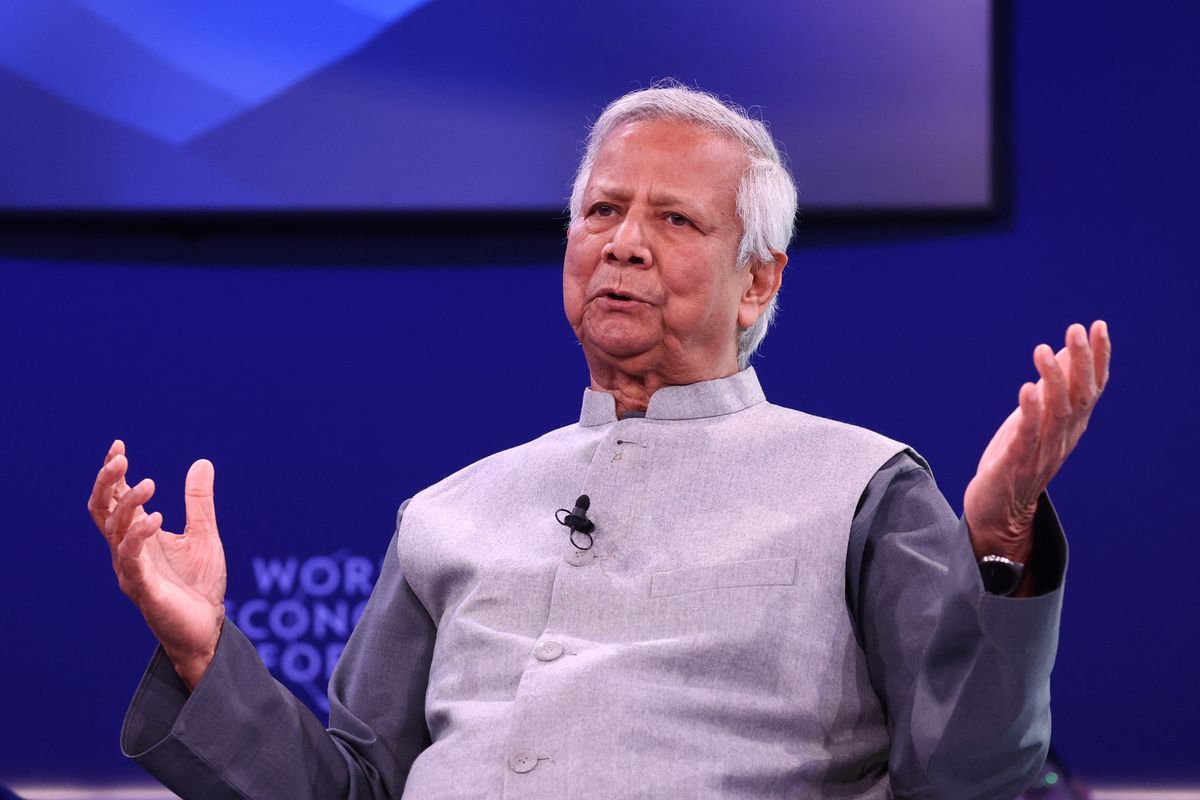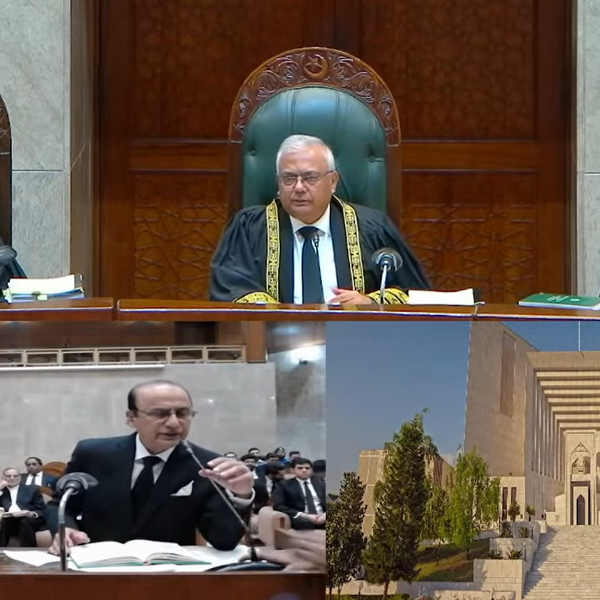Yunus’ China visit: A breakup from India?
Bangladeshi leader's visit to China is more than just diplomatic formalities; it signals a potential realignment of foreign policy

Sidrah Roghay
Senior Producer
Sidrah Roghay is a storyteller at heart, with over a decade of experience in newsrooms across Pakistan, the US, and Turkey

'Paradigm shift' for Dhaka to join the Chinese camp, says expert
Yunus to meet Xi on March 28, receive honorary doctorate from Peking University
New regional bloc emerging, comprising Bangladesh, Maldives, Nepal, Sri Lanka, China and Pakistan, says expert
Rohingya issue to be brought in meeting with Xi, says expert
All eyes are on Bangladesh's interim leader, Muhammad Yunus, as he visits China on Wednesday -- his first trip to the country since taking office in August.
Analysts view this as a major geopolitical shift, with Bangladesh seeking new alliances amid rising tensions with longtime ally India over the extradition of former Prime Minister Sheikh Hasina. Ousted after mass student protests earlier this year, Hasina fled to Delhi. India's decision to grant her refuge has only deepened the rift.
Additionally, India's reduction in issuing medical visas to Bangladeshi citizens has further strained ties, leading Bangladesh to look toward China for support
During his visit, Yunus will deliver a speech at the opening session of the Boao Forum -- an initiative of 25 Asian nations and Australia -- in China’s Hainan province on March 27. The Nobel laureate will also meet Chinese President Xi Jinping on March 28 and receive an honorary doctorate from the prestigious Peking University.
"Possibly this is the biggest reception ever being given to Dr. Yunus," Mahid Imran, a Dhaka-based political analyst told Nukta.
'Paradigm shift' toward China?
So how will Bangladesh’s growing alignment with China impact its historically close ties with India?
It’s a "paradigm shift” for Dhaka to join the Chinese camp, said Mehmood ul Hassan Khan, an expert on China.
"The growing ties of Bangladesh with China are being taken as a good omen for Indian obsessive economic expansion … in the region," said Khan, who heads Islamabad-based think tank The Center for South Asia and International Studies.

However, he believes the move won’t affect India too much, as “Indian Prime Minister [Narendra] Modi is also trying to increase its ties with China.”
Last October, Modi and Xi met on the sidelines of the BRICS conference, signaling a possible thaw in ties four years after a deadly border clash between Indian and Chinese soldiers.
Imran somewhat agrees. "I don't think it will impact India that much."
Despite recent hostilities with India, he said, Bangladesh still has "average" connections with imports and exports continuing as usual.
What does Bangladesh gain?
As a key part of China’s Belt and Road Initiative (BRI), Bangladesh stands to benefit from strengthening ties with Beijing.
Its “sinking economy” could see relief through Chinese investments in areas like e-commerce, AI, electric vehicles, the blue economy, and hybrid agriculture, said Khan.
More broadly, he pointed to the emergence of a new regional bloc under BRI, comprising Bangladesh, Maldives, Nepal, Sri Lanka, China, and Pakistan.
In the last decade, China has invested $4.45 billion under the BRI in Bangladesh, according to Chinese Ambassador to Bangladesh Yao Wen.
China's multi-billion-dollar flagship project BRI aims to connect Asia with Africa and Europe through a network of roads and railways.
China is now Bangladesh’s largest trading partner, with trade volume reaching $25 billion annually.
What's more on the cards
Imran said Bangladesh would seek assistance for the development of its southwestern Mongla Port.
"The biggest concern is economy particularly the health sector," he said. "Recently, China has promised to establish a hospital with world class facilities in Bangladesh."
Thousands of protesters were critically injured during the August uprising, Imran said, adding that the Bangladeshi leader plans to discuss their treatment in China with Xi.
Another issue on the agenda will be the nearly one million Rohingya refugees in Bangladesh. "Dr Yunus might ask for the establishment of a no man's land or a neutral zone where the refugees can stay safe and sound," Imran said.
New chapter?
Yunus’ visit to China is more than just diplomatic formalities—it signals a potential realignment of Bangladesh’s foreign policy.
"China requires our support and we can provide them one of the cheapest labor in the world. It's a win-win situation for us," said Imran.
But regardless of winners and losers, one thing is clear: Bangladesh is no longer content being caught between two giants—it is now shaping its own destiny.










Comments
See what people are discussing